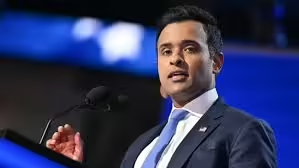
U.S. Dollar Strengthens Post-Election
The U.S. dollar surged to a one-year high against major currencies on Wednesday, driven by “Trump trades” and stable U.S. inflation data for October. Following Donald Trump’s recent presidential victory, market expectations have shifted towards potential inflationary measures from his incoming administration.
Inflation Data Supports Dollar Rally
The dollar index, which measures the greenback against a basket of currencies including the yen and euro, increased by 0.43% to 106.44, reaching a peak of 106.53. Labor Department data revealed that the consumer price index (CPI) rose 0.2% for the fourth consecutive month, aligning with economists’ forecasts and indicating ongoing inflationary pressures.
Market Reactions to Trump’s Agenda
With Trump’s Republican Party set to control both houses of Congress starting in January, analysts anticipate moves towards tax cuts and a reduction in federal spending. Brad Bechtel, global head of FX at Jefferies, noted that the dollar’s strength reflects a broader market sentiment linked to Trump’s economic agenda, alongside a recalibration in emerging market positions.

Decline in U.S. Treasury Yields
Following the inflation report, U.S. Treasury yields declined, with the 2-year note yield dropping 6.5 basis points to 4.279%. Marvin Loh, a senior global market strategist at State Street, remarked on the market’s relief rally, suggesting that the inflation data provided reassurance amid ongoing concerns.
Bitcoin Reaches New Heights
In a related development, Bitcoin surged past the $90,000 mark for the first time, buoyed by optimism surrounding Trump’s election. The cryptocurrency climbed 2.75% to $90,734.00, while Ethereum saw a slight decline of 3.11% to $3,178.60. Analysts indicate that both the dollar and Bitcoin represent straightforward avenues for capitalizing on the “Trump trade.”
Yen and Euro Under Pressure
The Japanese yen fell below 155 per dollar, marking its weakest level since late July. Meanwhile, the euro dropped to $1.0569, its lowest since November 2023, amid fears of potential Trump tariffs and political instability in Germany following the collapse of Chancellor Olaf Scholz’s governing coalition.


